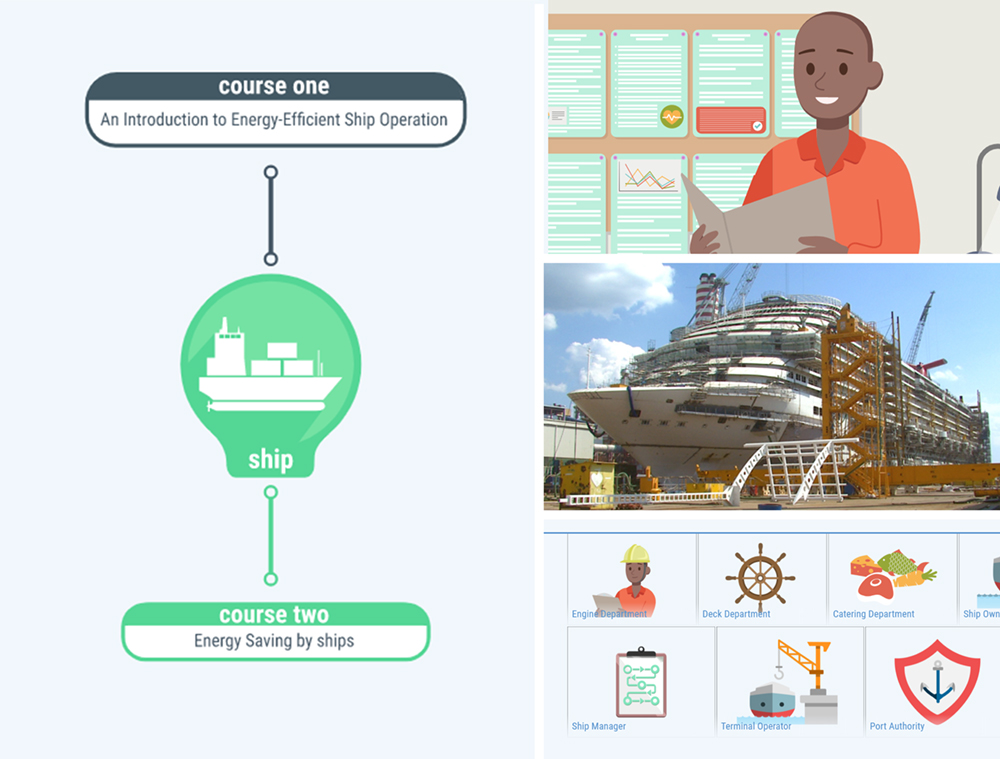IMO’s public-private partnership initiative to tackle GHG emissions, the Global Industry Alliance to Support Low Carbon Shipping (Low Carbon GIA), has launched a free to access E-Learning course aimed at seafarers and anyone interested in this aspect of shipping. The self-paced course, ‘An Introduction to Energy Efficient Ship Operation’ is intended as a first glimpse into how GHG emissions from ships can be addressed.
The online course, designed by e-learning specialist Ocean Technologies Group, features videos, text information, quizzes and more for an interactive experience. Each module includes interactive lessons, resources for additional learning as well as a final summary. The course is specifically designed to be accessible to non-technical audiences. It was developed and funded by the Low Carbon GIA, a partnership under the framework of the IMO-Norway GreenVoyage2050 Project.
"We know there is a lot of curiosity about how shipping is working to reduce its environmental footprint and we wanted to make this information easily accessible. This course can be taken by seafarers or the general public, and is a free resource that can even be worked on offline," says Minglee Hoe, project technical analyst at IMO's Department of Partnerships and Projects.
The course features two modules, each of which takes on average 1 hour to complete:
‘Greenhouse gases and energy efficiency in the maritime industry’ which covers IMO’s regulatory framework to address GHG emissions from ships, particularly the Energy Efficiency Design Index (EEDI) and the Ship Energy Efficiency Management Plan (SEEMP) under MARPOL Annex VI.
‘Practical ways of reducing energy use at sea’ which focuses on the operational measures that can be included in the SEEMP Part I (trim optimization, voyage planning, maintenance of engines etc.) and which can contribute to improvements in the energy efficiency of ships, thereby reducing GHG emissions.
Additional modules aimed at seafarers are currently under development and will be released in due course. These modules will cover detailed practical measures that can be taken and will be particularly suitable for seafarers working in the engine and deck departments, onshore personnel/companies and those working at ports.
The course is hosted by the UN Climate Change Learning Partnership (UN CC:Learn), a joint initiative of more than 30 multilateral organizations helping countries to achieve climate change action both through general climate literacy and applied skills development. A certificate of completion is awarded to learners who successfully complete the course assessments. For participants with limited internet access or time online, a PDF version can be downloaded to allow for offline learning and can come back to take the quiz online.
Take the course by clicking here.
